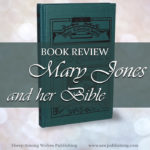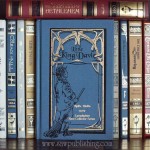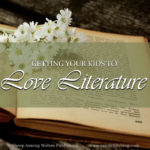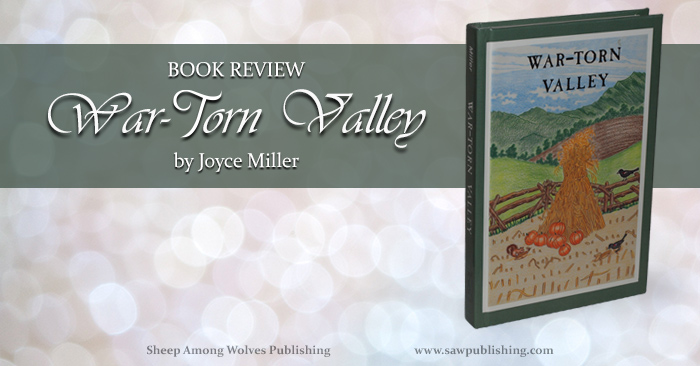How to Get Your Kids to Love History
 As a child, it felt like I spent a lot of time studying Ancient Egypt. My mom tells me I didn’t really—but it felt like that to me. Unfortunately, I don’t remember much of it.
As a child, it felt like I spent a lot of time studying Ancient Egypt. My mom tells me I didn’t really—but it felt like that to me. Unfortunately, I don’t remember much of it.
Oh, but that’s not quite true. I do remember a little. Actually, I remember more than a little—but then, I learned it through reading fiction, not from any of my history courses, so maybe it doesn’t really count.
I remember a lot more about Victorian England, if that helps. But then again, I read a lot more books about Victorian England. And I can’t necessarily pull dates out of the air, or tell you facts about policies and power struggles, and natural disasters.
But I can tell you about some of the people of the era; the people and—their stories. And I can tell you about the struggles over right and wrong, the dreams of enlarging God’s kingdom—the hopes and fears, the successes and failures, the choices that I can follow—or learn from.
I can tell you all that, but does it count? Did I learn history, or didn’t I? I’d like to think that I did.
 Why Are We Teaching History?
Why Are We Teaching History?
The question of how we teach history is very closely related to the question of why we teach it. For a lot of us, the word history calls up images of dry, boring lists of dates and names. But why would we need to study that?
Perhaps the biggest reason why we should study history is so that we can profit by the examples of the past. There are many instances throughout history of people who struggled with the same things we struggle with today. Some of those people made choices that we can emulate and admire—others fell short and reaped negative consequences in result. In either case, we can learn from the choices made by those before us, so that we can avoid the pitfalls and follow the good examples of people from the past.
Viewing history as a collection of positive and negative examples for us to learn from, should have a profound impact on the way we teach it.
Are We Teaching History or Annals?
Too often, we confuse the concept of history with the concept of annals.
“History differs from annals. Annals relate simply the facts and events of each year, in strict chronological order, without any observations of the annalist. History regards less strictly the arrangement of events under each year, and admits the observations of the writer.” – Noah Webster (1758-1843)
Even in 1828 when his dictionary was compiled, Webster admitted that “This distinction however is not always regarded with strictness.” But for our purpose in this post, the two terms work very well.
It is the history, not the annals, that contains the valuable nuggets of example which, from my perspective, are the chief reason for studying history at all.
Fortunately for us, it’s a lot easier to get kids to love history than annals!
Keying in On the “Story”
When we stop and think about it, it’s the story in history that really matters—and all children love a story! Even from an etymological perspective, the connection is visible:
“History and story are the same word differently written.” – Noah Webster (1758-1843)
Here lies the secret to getting kids to love history. It needs to be a story—not an extract from a collection of annals. When history is presented as a story, it captures the imagination of children not only during school hours, but out of them.
Introducing History through Fiction
But what does this look like practically?
There are very few history books, especially history books for younger students, which present the facts of history in a truly story form. For this reason, the best way to cultivate an interest in history is to start children on historical fiction before you start them on history. Historical fiction allows a thread of exciting narrative against a backdrop of real events or conditions, to subconsciously make history interesting. A really skillful book of historical fiction will cause the progress of the plot to hinge on facts and scenarios that could only have taken place in a particular place at a particular time.
Historical fiction is a truly amazing way of sparking a child’s interest in history.
Parents don’t need to be concerned that this will ultimately keep children from reading or being required to read real history. As children take in historical fiction, their desire to know more about the past will increase. They may even go so far as to read history of their own free volition in order to answer their questions or just gain more information.
Even if they are not spurred on to quite such heights, reading historical fiction in conjunction with a prescribed history course will allow them to take interest in the facts which they learn more formally.
Historical fiction is not the end, but the means, to creating a love of history in your kids.
How to Get Your Kids to Love History
History is a very valuable subject when we view it the right way. The ability to learn from second-hand experience is not to be taken lightly. It can keep us from making the same mistakes that people made in the past. It can allow us to choose the road that others chose—and found victorious.
But we need to look on it in the right way, if we want to derive these benefits. We need to allow history to be a story—not a record of facts. We need to see living, breathing people, with real destinies, real hopes and fears, real souls that won or lost on the battlefield of this world—and the next.
Reading historical fiction to our kids teaches them that history is a story. It teaches them that the people of the past weren’t unrelatable and different—rather they were people just like us, people who can be our friends, and our heroes.
Let’s give our kids that view of history. It shouldn’t be too hard to make them love it, if we do.
Are you looking for a new perspective on the American Civil War? Check out our review of this story that will challenge the way you have thought about one of the most significant conflicts of the past two hundred years.
You might also enjoy:

Book Review: Mary Jones and Her Bible by Mary E. Ropes is an excellent story based on the true account of the birth of the British and Foreign Bible Society.

Little King Davie is a charming story of 19th century London. It seems at first glance to be geared to children, but the truths explored are ones that we all need to ponder as we join Davie in seeking to be “faithful in the least.”

Most homeschoolers recognize the value of good books, but a lot hinges on how we pass them on to our students. Give them the legacy of literature by making reading a recreation not a school subject.

